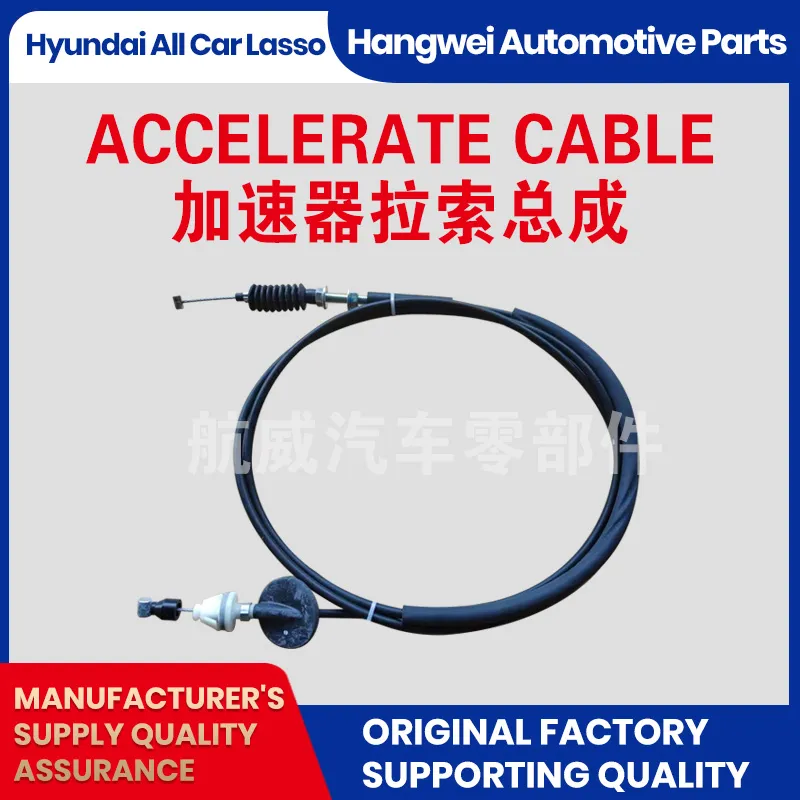Understanding the Function of Master Cylinder in Clutch Hydraulic Systems
Understanding the Master Cylinder Clutch Line Vital Component of Vehicle Operation
The master cylinder clutch line is an essential component of modern vehicles equipped with a hydraulic clutch system. This system plays a crucial role in the seamless operation of manual transmission vehicles, allowing drivers to shift gears smoothly and efficiently. Understanding how the master cylinder clutch line works, its significance, and maintenance can provide valuable insights into vehicle performance and longevity.
What is the Master Cylinder Clutch Line?
The master cylinder clutch line is part of the hydraulic clutch system. The system comprises several components, including the master cylinder, slave cylinder, clutch line, and the clutch itself. The master cylinder is typically mounted on the vehicle's firewall, and its primary function is to generate hydraulic pressure when the clutch pedal is pressed. This pressure is transmitted through the clutch line to the slave cylinder, which in turn engages or disengages the clutch mechanism connected to the transmission.
How It Works
When the driver presses the clutch pedal, the master cylinder compresses the hydraulic fluid within it. This action sends the fluid through the clutch line to the slave cylinder. The slave cylinder then translates the hydraulic pressure into mechanical force, effectively disengaging the clutch. This process allows the driver to shift gears without grinding or difficulty.
The hydraulic system is advantageous compared to older mechanical systems, as it requires less physical effort from the driver. Furthermore, hydraulic systems can provide a more consistent and reliable performance, with less risk of component wear.
Importance of the Master Cylinder Clutch Line
1. Seamless Gear Shifting The master cylinder clutch line enables smooth gear changes, which is critical for the vehicle's performance. A well-functioning hydraulic system minimizes the wear on clutch components, enhancing the overall driving experience.
2. Durability and Performance The hydraulic mechanism provides superior durability compared to mechanical systems. This resilience contributes to a longer lifespan of the clutch components, thus reducing the frequency of repairs and replacements.
3. Ease of Use Hydraulic clutch systems offer a lighter pedal feel, making it easier for drivers to operate the vehicle, especially in heavy traffic or challenging driving conditions.
master cylinder clutch line

Common Issues with the Master Cylinder Clutch Line
Like any mechanical system, the master cylinder clutch line is subject to wear and tear. Some common issues that can arise include
1. Leaking Fluid A leak in the clutch line can lead to inadequate hydraulic pressure, resulting in difficulty shifting gears or a completely inoperable clutch. Regular inspections for leaks can help prevent this issue.
2. Air Contamination If air enters the hydraulic system, it can lead to poor clutch performance. This situation often requires bleeding the system to remove any trapped air.
3. Worn Components Over time, the master cylinder, slave cylinder, or the clutch line itself may wear out. It's essential to replace any worn components to ensure proper functionality.
Maintenance Tips
1. Regular Inspections Periodically checking the master cylinder and clutch line for signs of wear or fluid leaks can prevent future issues. Be observant of any changes in pedal feel or difficulty in shifting gears.
2. Fluid Replacement The hydraulic fluid should be replaced as per the manufacturer's recommendations. Old or contaminated fluid can lead to system failures.
3. Professional Services For any significant issues, seeking professional assistance from a qualified mechanic is crucial. They can perform a thorough inspection and ensure that all components of the hydraulic clutch system are functioning correctly.
Conclusion
The master cylinder clutch line is a critical component of a vehicle's hydraulic clutch system, essential for smooth gear transitions and overall performance. Understanding its function, importance, and common issues can help vehicle owners maintain their cars effectively. Regular inspections and timely maintenance can ensure that the hydraulic clutch system operates efficiently, ultimately leading to a superior driving experience. By prioritizing care for the master cylinder clutch line, drivers can enjoy the reliability, comfort, and performance of their manual transmission vehicles for years to come.
-
Workings of Clutch Pipe and Hose SystemsNewsJun.04,2025
-
The Inner Workings of Hand Brake Cable SystemsNewsJun.04,2025
-
The Secrets of Throttle and Accelerator CablesNewsJun.04,2025
-
The Hidden Lifeline of Your Transmission Gear Shift CablesNewsJun.04,2025
-
Demystifying Gear Cables and Shift LinkagesNewsJun.04,2025
-
Decoding Clutch Line Systems A Comprehensive GuideNewsJun.04,2025
